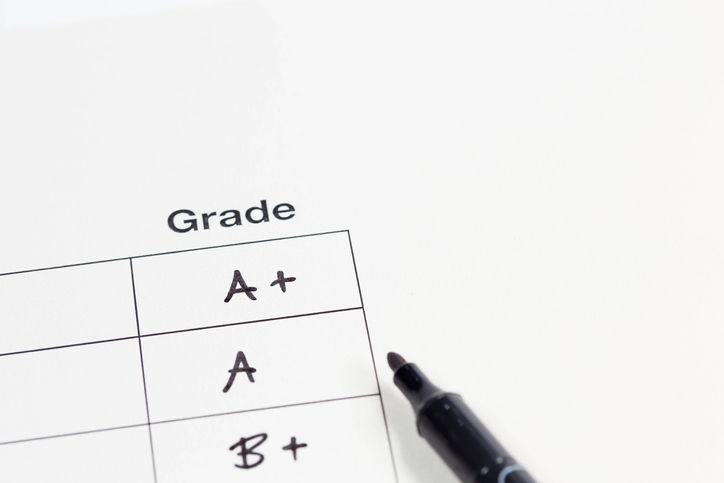This page is licensed under Creative Commons under Attribution 4.0 International. Anyone can share content from this page, with attribution and link to College MatchPoint requested.
Is A B- In An AP Class "Better" Than An A+ In a Grade Level Class?
When it comes to choosing classes in high school, many students are faced with the decision of whether to take an Advanced Placement (AP) class or a traditional, grade-level class. While both options have their advantages, there is often a debate over whether a "B" in an AP class is better than an "A" in a grade-level class. The answer to this question is not straightforward, as it depends on a number of factors, including the student's goals, academic abilities, and future plans.

First and foremost, it is important to understand the difference between AP and grade-level classes. AP classes are college-level courses offered by the College Board that are designed to be more challenging and rigorous than traditional high school courses. They are designed to prepare students for the demands of college and to demonstrate their mastery of a particular subject. In contrast, grade-level classes are traditional high school courses that are taught at a level appropriate for the students' age and academic abilities.
When considering whether a "B" in an AP class is better than an "A" in a grade-level class, it's important to take into account the level of difficulty of each class. AP classes are designed to be much more challenging than grade-level classes, and a "B" in an AP class is typically equivalent to an "A" in a grade-level class. This is because a "B" in an AP class demonstrates that the student was able to handle a high level of coursework and achieve a good grade in a challenging environment.
However, it's also important to consider the student's goals and future plans. For students who are planning to apply to highly competitive colleges or universities, a "B" in an AP class may not be enough to demonstrate their abilities and set them apart from other applicants. In these cases, an "A" in a grade-level class may be more advantageous, as it demonstrates that the student is capable of achieving a high grade in a challenging environment.
Another factor to consider is the student's academic abilities. Some students are better suited to the rigor and fast-paced nature of AP classes, while others may struggle to keep up and may be better served by taking grade-level classes. It's important to assess your own abilities and choose classes that are challenging but manageable. If you take an AP class and struggle to keep up with the coursework, it may be better to switch to a grade-level class and focus on achieving a high grade.
It's also important to consider the impact of grades on the student's overall GPA. A "B" in an AP class will typically have a greater impact on a student's GPA than an "A" in a grade-level class, as AP classes are weighted more heavily. This can be a double-edged sword, as a high GPA can be an asset when applying to college, but a low GPA can be a liability.
In conclusion, whether a "B" in an AP class is better than an "A" in a grade-level class depends on a number of factors, including the student's goals, academic abilities, and future plans. It's important to consider the level of difficulty of each class, the impact of grades on the student's GPA, and the student's own academic abilities when making this decision. Ultimately, the goal should be to choose classes that challenge and prepare the student for college, while also allowing them to achieve a high grade and build a strong foundation for their future.


